
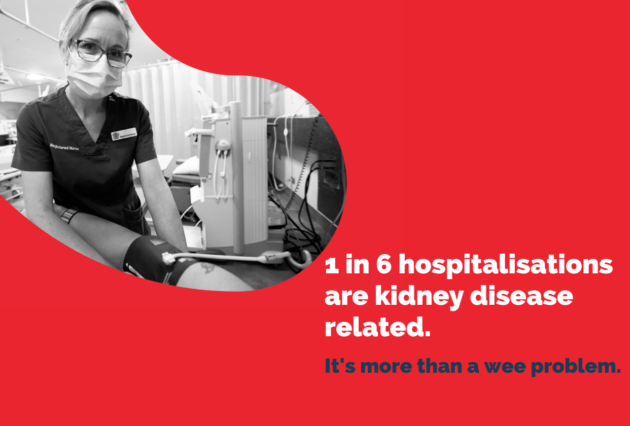
Most people don’t realise how serious kidney disease is or understand the risk factors associated with it. Our research shows that most Aussies associated early signs of kidney disease with urinary pain, pain weeing, or blood in urine (and 59% weren't confident about their answer).
Often, by the time symptoms are felt people are close to kidney failure. A little known fact is that 90% of kidney function can be lost with no symptoms, no warnings. It’s not surprising then that kidney disease is often underdiagnosed, until it’s too late to do anything about it.
Research shows that 17% of people start dialysis within 90 days of being referred to a renal service. From then on their lives change drastically. Life quality quickly becomes a thing of the past as people are sentenced to years of dialysis – connected to a machine that slowly cleans out all the toxins from the blood 3 times a week, 5 hours a day. It’s a life sentence for the patient and their families.
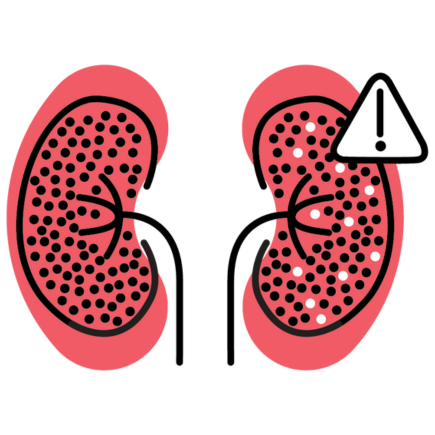
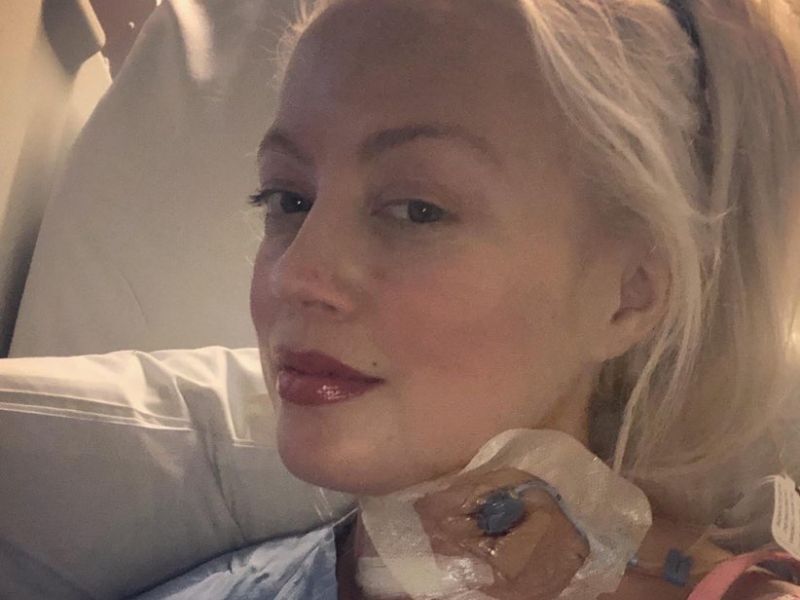
Lesley was only 29 years old when she was diagnosed with under 10% kidney function. She’s been on dialysis now for over 12 years, still waiting for a transplant. Although she’s a warrior and extremely positive person, kidney disease is something she doesn’t wish upon anyone.
“I was diagnosed quite suddenly, and the diagnosis changed my life. It’s quite shocking to suddenly be hooked up to a machine 3 times a week, 5 hours a day just to perform a normal bodily function. I urge everyone who is at risk to get a Kidney Health Check from your GP. Do whatever you can to postpone kidney failure.”
“Shane was a fit and healthy person, heavily involved in sport, but we didn’t know that under it all, his kidneys were failing, probably for years. Early detection is so important because the earlier you find out, the more you can educate yourself and the better equipped you are to prolong your life and wellbeing.”
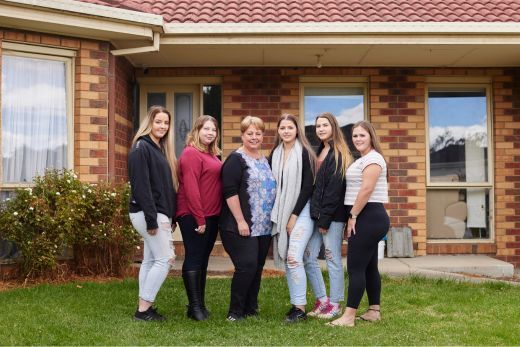
In 2013, Jodie’s husband Shane was diagnosed with kidney disease but didn’t realise there was anything he needed to do – after all, he felt fit and healthy. Shane wished he had known there were steps that could be taken to manage his diagnosis and slow the progression of the disease. In 2019 he was told his kidney function had deteriorated to just 6%. One year later he died from a kidney-related heart attack at the age of 48 leaving behind his wife, Jodie and their five daughters.
53-year-old Shaliendra stumbled across a chronic kidney disease diagnosis during a general checkup for his executive team at work. Living a healthy lifestyle as a non-drinker, non-smoker, Shaliendra was told in 2008 that he had high blood pressure; however, no doctor could tell him why. Fast forward to 2015 when a mandatory workplace annual health check was conducted and it all started to make sense – Shaliendra’s kidney function was at 52%, something he was completely oblivious to and something that had not been explored by doctors aware of his high blood pressure, despite being a major risk factor of chronic kidney disease.
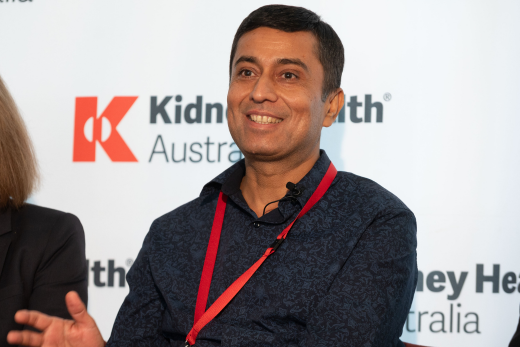
An engineering graduate and Senior Director of Health, Safety and Wellbeing at Optus, Shaliendra has a curiosity for research and how things work, so he has since taken it upon himself to adapt his lifestyle to prolong his quality of life, making adjustments to his diet and physical activity to ensure he is at optimal health and able to delay having to be on dialysis.
Shaliendra’s main message is that "it’s not the end. If you get an early diagnosis, then you can manage it extremely well and live a normal life". He encourages people not to look at results with a spot lens and look at how it tracks against your own trends.
With a natural decline in kidney function with age, Shaliendra’s kidney function is now at 48% - a progression he has slowed since diagnosis and has monitored regularly.
The good news is that if detected early, deterioration in kidney function can be reduced by up to 50%. Finding those at risk is key. Once these patients are diagnosed through a simple Kidney Health Check (blood pressure check / blood test for eGFR / urine albumin: creatinine ratio), new treatments now listed for CKD can slow the progression of kidney disease by up to 15 years.
Help save people’s lives and keep them out of hospital.

To help with best practice diagnosis and treatment download our CKD Management in Primary Care handbook, 4th edition.
Sign up to the Kidney Health Professional Hub to access the how to guides: Kidney Health Check with MBS, Refer to Specialist Kidney Care, Sick Day Action Plan, Search for CKD with Practice Data, Stage & Diagnose CKD and more!
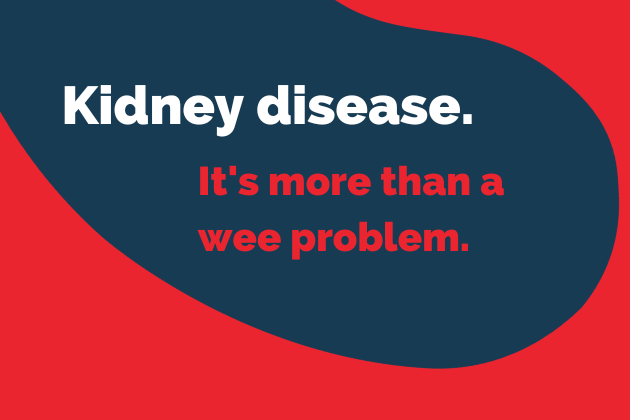
Everyone can help spread awareness during Kidney Health Week.